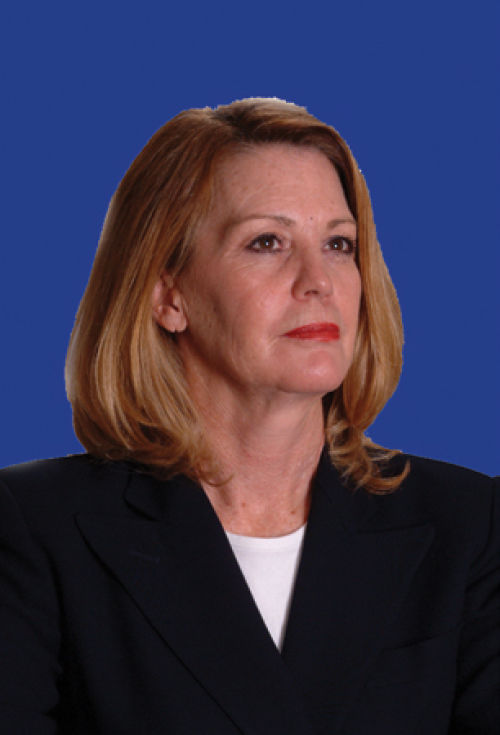
Sort of draw in snapper battle
June 4, 2013
Randolph: Adjusted emergency pay rates need for govt. staff
June 4, 2013A Federal Elections Commission report says investigators unearthed evidence that a Houma tugboat magnate – now facing a federal criminal charge involving illegal campaign contributions – used a similar bundling scheme in local races.
But the state agency that oversees Louisiana campaign contribution violations is powerless to investigate Arlen “Benny” Cenac’s contributions because the activity occurred more than three years ago, which is beyond the statute of limitations state law allows.
Precisely which of the many races Cenac has contributed to might have received money that violated campaign finance laws is nearly impossible to determine at this point.
Cenac is expected to plead not guilty as early as this week to a single count of making a false statement to federal officials, a felony carrying a maximum term of five years in prison at the federal courthouse in New Orleans. Cenac is the CEO of Cenac Towing and companies related to that firm.
Melanie Sloan, executive director of Citizens for Responsibility and Ethics in Washington, D.C., a watchdog group that called the attention of federal authorities to the Sens. David Vitter, R-La., and Mary Landrieu, D-La., contributions, said she was not surprised by the allegation of local improprieties. It is a sign, she said, that candidates and their staff need to carefully watch who is giving them donations and to be on the lookout for campaign finance violations.
“States don’t have a lot of people in charge of looking for this kind of thing, they don’t have the resources, and absent a complaint they are not going to find things on their own,” Sloan said.
The federal charge – stemming from the only criminal conduct specifically alleged – arises from a scheme in which Cenac had an employee purchase cashier’s checks with his personal checks at Whitney Bank. The cashier’s checks were then made out with the names of people Cenac knew as remitters. The cashier’s checks were given to the election campaigns of Landrieu and Vitter.
The contributions were over the federal limit allowable by one individual or one company.
Federal law states it is illegal to make a campaign contribution in the name of another person.
The campaigns were found to not be at fault during the FEC probe.
Documents related to the FEC investigation, however, allege that Cenac similarly purchased cashier’s checks for local campaigns in 2007, with no other details.
A search of Cenac’s contributions that year by the Tri-Parish Times revealed that Cenac had made some campaign contributions. But the names of the people whose names were used in the Vitter and Landrieu schemes – the straw contributors – did not show up in disclosure reports for the local campaigns.
In 2007, according to the Louisiana Ethics Board database, Cenac Towing contributed $5,000 to the campaign of Gov. Bobby Jindal. Cenac himself is listed twice as a contributor to Agriculture Commissioner Mike Strain in the amount –$5,000 – during that same year.
No allegations of wrong-doing are assigned to those sets of contributions.
Ethics Board records show Cenac as a contributor to various local and state campaigns over the years, totaling more than $186,000 from 1999 to the present time.
From 1999 to 2001, former Attorney General Richard Ieyoub’s campaigns received a grand total of $5,000 Cenac donations.
Ironically, it was Ieyoub’s staff investigators who pursued an aggressive – though unsuccessful – attempt to prosecute Cenac on allegations that he molested a child.
A local prosecutor, Lafourche Parish District Attorney Cam Morvant, presented evidence concerning those allegations to a grand jury. The panel neither dismissed nor affirmed the accusations, choosing to pretermit, meaning the case could be revisited in the future. That has never occurred.
Even if someone – as Cenac did in the Senate contests – made contributions in the names of others, the candidate is not at fault if there is no knowledge that it has been done.
The same holds true for PACS, like the Louisiana Committee for a Republican Majority. That PAC received $25,000 from Cenac in 2010, $25,000 in 2011 and $50,000 in 2012 from Cenac Towing. The PAC is chaired by shipbuilder Boysie Bollinger.
Another PAC listed as a recipient of Cenac’s largesse is the CCA Sport PAC, headed by former Coastal Conservation Association president Jeff Angers. Cenac made four contributions to the PAC in his own name, for $1,000 each, in 2003.
Cenac made two contributions of $5,000 each to former Gov. Kathleen Blanco in 2006; Chris Bollinger, who ran for the U.S. Senate, netted $2,500 and $500 from Cenac personally and $2,500 from Cenac Towing in 1999 and 2001; Hunt Downer’s gubernatorial run in 2003 received $2,500.
Former State Sen. Reggie Dupre’s campaigns were given $500 by Cenac personally in 1999. In 2001, Cenac donated $1,000 to Dupre, as did Cenac Towing.
Former Louisiana Attorney General Charles Foti received $2,000 from Cenac in 2004, and, in 2009, Cenac Offshore LLC gifted $1,000 to Rep. Joe Harrison.
Gov. Bobby Jindal has received $25,000 from Cenac or his companies in increments of $5,000. State Treasurer John Kennedy received a total of $8,200 and Agriculture Commissioner Mike Strain $10,000.
In federal races, Cenac is hardly a newcomer when it comes to contributing to the Vitter campaign. From the time Vitter was a congressman, Cenac has contributed $13,900, not counting the contributions that Vitter turned over to charity due to the current case.
Contributions to Landrieu have been less generous, amounting to only $8,600.
Total federal campaign contributions from Cenac and his companies total $120,854 from 1997 to the present. There are no indications that any of those contributions were made in violation of the law. But uncovering illegal contributions is also a difficult task.
The wrong-doing leading to Cenac’s criminal charge only came to light because Landrieu’s campaign staff, seeing an appearance of a problem with some contributions but not knowing who was behind them, gave them to the U.S. Treasury, as the law requires.
Had the Landrieu team not been suspicious, however, there might not have been any prosecution at all.
Sloan and other good-government advocates say it is the moral responsibility of candidates to scrutinize their contributions to see where problems might exist.
“Candidates should be concerned and going back if they can, checking on these donations,” Sloan said. “He likely started out with legal contributions. You work your way up to the illegal. When you make that crossover you started with something small and then expanded. You get away with more and more.”










